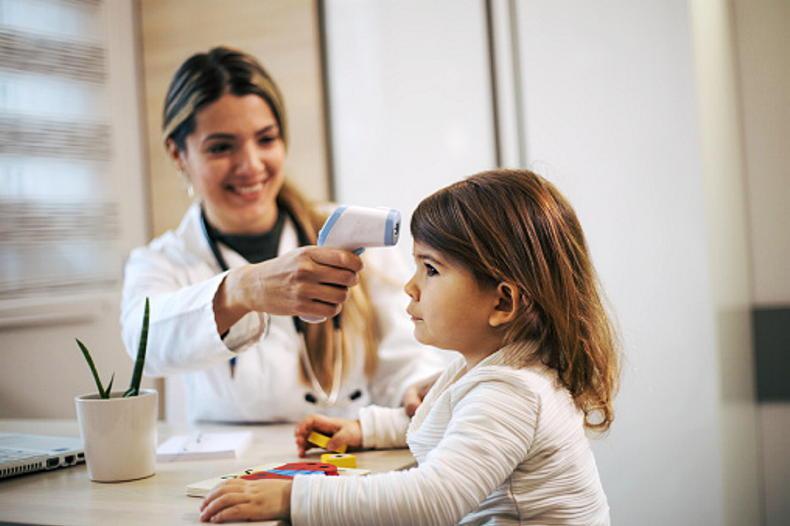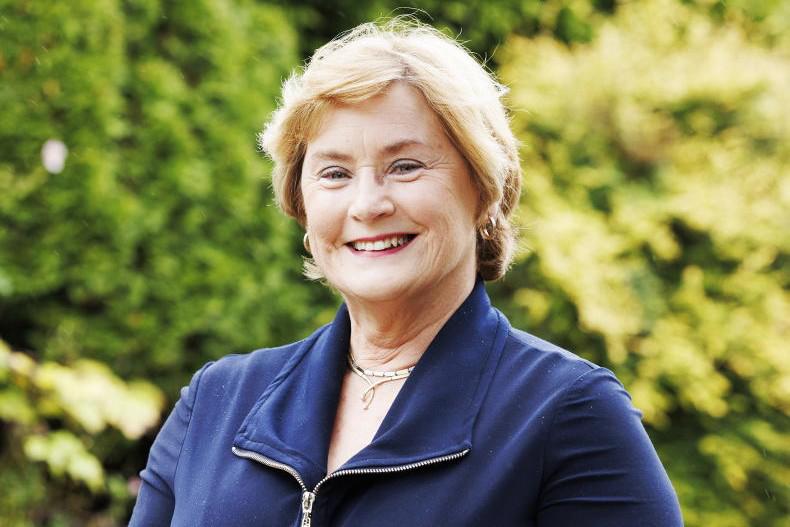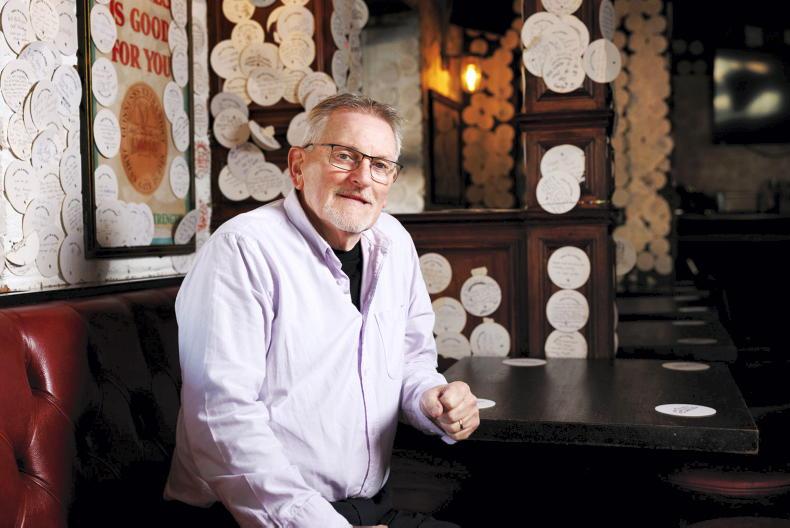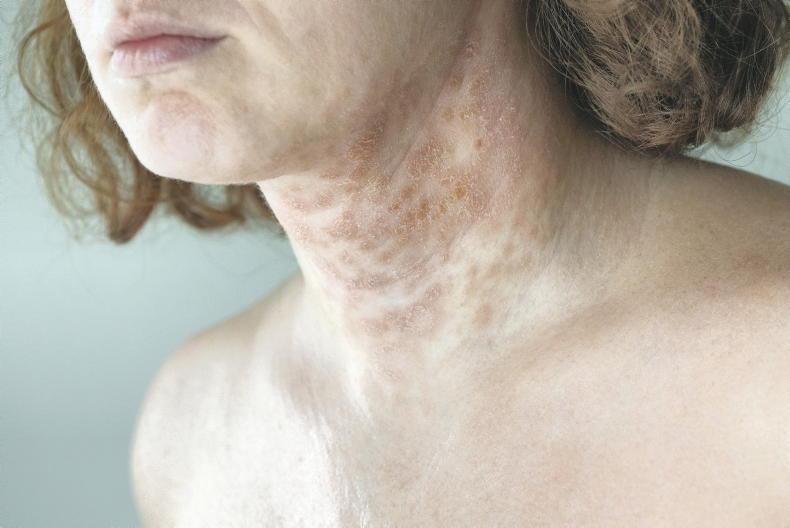Flu jab 2023
This year’s seasonal flu vaccine contains protections against four strains of flu virus, recommended by the WHO as the strains most likely to be circulating this season. You can get a free flu vaccine if you are:
Age 65 and olderAge 2–12A healthcare workerPregnantLiving in a nursing home or other long-term care facilityIn regular contact with pigs, poultry or waterfowlYou are in a high-risk category, or living with or caring for someone with a health condition that puts them at higher risk of flu.Flu vaccinations can be booked through your GP or pharmacy and cost €35.
COVID-19 booster
Who can get an autumn COVID booster? A booster dose will be offered in autumn if you are:
age 50 and olderage 5 or older with a weak immune system age 5 to 49 with a condition that puts you at high risk of serious illness from COVID-19a healthcare worker.If you’re due a booster, you can go to a participating pharmacy or
go to your GP if they are offering COVID-19 vaccination.
Call HSELive on 1800 700 700 to find out where is offering vaccines near you.
Public hospital
free stays
Remember that it no longer costs money for a hospital stay as a public patient in Ireland. The €80 charge per night up to a maximum of €800 was abolished in April 2023.If you use accident and emergency services without being referred there by a GP, there is a charge of €100. There is no charge if you are referred by a GP (bring your referral letter with you)
Shingles vaccination
A shingles vaccine is now available on the Irish market, but it isn’t available through the medical card or drug payment schemes. It costs about €200.
Shingles is a viral disease that occurs more frequently in people over 50, but anyone who has had chicken pox could be at risk as shingles is caused by the chickenpox virus. It can be reactivated when your immune system weakens due to increasing age, stress, or with certain conditions and treatments (like for cancer or HIV).
Shingles causes a painful rash that appears as red blotches on your skin on one side of your body only. Although most people fully recover from shingles, some can be left with long-term nerve pain that continues for months or even years after the blisters and rash have healed – this is called post-herpetic neuralgia (PHN). The older you are, the higher your chance of developing PHN as a result of shingles.
The vaccine not only helps reduce your risk of developing shingles, but can lessen the severity and duration of any symptoms if you do, as well as cutting your risk of developing PHN.
There are two shingles vaccines currently available in Ireland. One is a live vaccine called Zostavax (given as one dose) and the other is a recombinant vaccine called Shingrix (given in two doses).
See shingles.ie
Males can now get HPV vaccine
Free HPV vaccines are now offered to all boys and girls in second-level education who haven’t yet received it.
All males up to the age of 22 can also get it free of charge, as can women up to the age of 25 who didn’t get the vaccination in secondary school. This is being offered as part of the extension of the Laura Brennan HPV (Human Papillomavirus) Vaccine Catch-Up Programme, launched last year.
The vaccine protects against the types of HPV that cause approximately 90% of cervical cancers, 90-95% of HPV-related anal cancer and 90% of genital warts.
The programme is named in memory of Laura Brennan who campaigned for higher uptake of the HPV vaccine before her death from cervical cancer at the age of 26, in 2019.
Eligible people can register at hpv.ie

All women aged 17-30 can now avail of free contraception. / iStock
Free contraception
The free contraception scheme in Ireland has been expanded to include women age 27-30 years. All women aged 17-30 can now avail of it. The scheme covers the cost of consultations with GPs, family planning, student health and primary care centres and prescriptions for the wide range of contraceptive options available on the HSE Reimbursement List.
See the HSE’s new websit sexualwellbeing.ie for more information.
Alcohol-free pregnancy
The HSE is urging alcohol-free pregnancy so that a group of disorders caused by prenatal alcohol exposure will not occur. These Foetal Alcohol Spectrum Disorders (FASD) are associated with a range of lifelong physical, mental, educational, social, and behavioural difficulties. Prenatal alcohol exposure is therefore the leading preventable cause of neurodevelopmental disorder.
Alcohol at any stage of pregnancy, even small amounts, may affect a baby’s development and can have lifelong effects such as FASD.
Exactly how many people in Ireland are living with this condition is unknown, but it is estimated that up to 600 babies with FASD are born each year. The predicted prevalence of FASD in Ireland is the third highest in the world and therefore, the message is that no amount of alcohol at any stage during pregnancy is safe for your baby.
The HSE provides some tips for not drinking during pregnancy:
Planning alcohol-free activitiesPlanning ahead and avoiding triggers (people and places) which encourage drinkingAsking partners, friends and family to support youFinding new routines that don’t include alcoholGetting support from your GP, midwife and obstetrician.See hse.ie/pregnancy-birth/keeping-well/food-drink/alcohol/
LUNG LOVE
The Irish Thoracic Society points out that you can safeguard your lung health by doing five things: quitting – or never – smoking, eating a healthy balanced diet, undertaking regular exercise, breathing clean air and getting vaccinated against flu, COVID-19 and whooping cough.
Vaping isn’t good
The growth in young people vaping is a serious concern, according to Dr Marcus Butler, consultant respiratory physician and president of the Irish Thoracic Society.
“We know from recent research that there has been a more than 50% rise in e-cigarette use among 15-16 year olds in Ireland,” he says.
“68% had never smoked a conventional cigarette before trying e-cigarettes/vapes. Moreover, nicotine, which is highly addictive, is found in most e-cigarettes and often in large doses. It is concerning that for those who have never smoked, such as adolescents, taking up e-cigarettes makes them three to five times more likely to start smoking compared with those who have never had an e-cigarette, risking the creation of a new generation of smokers…
“Regrettably, most smokers buying e-cigarettes to quit smoking end up using both e-cigarettes and tobacco, making them even worse off.”
A-Z guide to
manage emotions
The parish of Upperchurch, Drombane near Thurles, Co Tipperary, has published an A-Z guide on how to manage your emotions entitled Rockshield. It is written by farmers for farmers and the wider community. “We have no doubt that this is a fundamental change in the approach to emotional wellbeing,” committee member Joe Ryan says. “We would be happy to share the model we have created to inspire other communities. As a nation we can help each other. Yes we can!”
Did you know?
A Menopause Success Summit will take place in the Royal Marine Hotel, Dun Laoghaire on Saturday, 14 October from 9.30am to 5.30pm. Speakers include UK menopause advocate Diane Danzebrink and Lorraine Keane. Tickets cost €120 and are available from menopausesuccesssummit.com Tickets include lunch, refreshments and a goody bag. Arthritis Ireland has launched a new video series aimed at raising awareness and providing education about living with rheumatoid arthritis. See arthritisireland.ieIf we live to age 70 our hearts will have beaten around 2.5 billion times!Flaxseed packs a punch in terms of health benefits because it is a natural energy booster and a source of plant-based protein as well as containing magnesium, fibre and omega-3 fatty acids.Bananas can help improve your mood as they contain vitamin B6, which helps the brain produce serotonin, a mood stabilizer. 
Free GP care was expanded to six and seven year olds. / iStock
GP visit card
scheme expanded
On 8 August, 2023, free GP care was expanded to six and seven year olds.
Free GP visit cards are now available to more people aged eight to 69 as means tests have changed. From 13 November, 2023, it will be expanded further.
People aged up to 69 and parents of children aged eight and up can apply for a means tested GP visit card on the HSE website.
The means test assessment considers a person’s or family’s circumstances, income and expenses. As well as assessing various kinds of income, a means test assessment considers personal situation, including dependent children and living situation, plus expenses such as rent or mortgage and childcare costs.
This expansion will increase the qualifying financial threshold for a means tested GP visit card in two phases.
The weekly income threshold for a single person living alone increased from €304 to €361 in the first phase and will increase to €418 in the second.
The weekly income threshold for a single person living with family increased from €271 to €322 in the first phase and will increase to €373 in the second.
The weekly income threshold for a couple without dependent(s), a couple with dependent(s) or a one parent family increased from €441 to €524 in the first phase and will increase to €607 in the second.
See the simplified online application process for means tested GP visit cards on hse.ie/GPVisitCards.
The GP visit card covers free GP visits and out-of-hours urgent GP care.
These changes apply to adults and children aged 8 to 69.
Remember: all children aged
under 8 and people aged 70 and over are automatically eligible for
a GP visit card.
Flu jab 2023
This year’s seasonal flu vaccine contains protections against four strains of flu virus, recommended by the WHO as the strains most likely to be circulating this season. You can get a free flu vaccine if you are:
Age 65 and olderAge 2–12A healthcare workerPregnantLiving in a nursing home or other long-term care facilityIn regular contact with pigs, poultry or waterfowlYou are in a high-risk category, or living with or caring for someone with a health condition that puts them at higher risk of flu.Flu vaccinations can be booked through your GP or pharmacy and cost €35.
COVID-19 booster
Who can get an autumn COVID booster? A booster dose will be offered in autumn if you are:
age 50 and olderage 5 or older with a weak immune system age 5 to 49 with a condition that puts you at high risk of serious illness from COVID-19a healthcare worker.If you’re due a booster, you can go to a participating pharmacy or
go to your GP if they are offering COVID-19 vaccination.
Call HSELive on 1800 700 700 to find out where is offering vaccines near you.
Public hospital
free stays
Remember that it no longer costs money for a hospital stay as a public patient in Ireland. The €80 charge per night up to a maximum of €800 was abolished in April 2023.If you use accident and emergency services without being referred there by a GP, there is a charge of €100. There is no charge if you are referred by a GP (bring your referral letter with you)
Shingles vaccination
A shingles vaccine is now available on the Irish market, but it isn’t available through the medical card or drug payment schemes. It costs about €200.
Shingles is a viral disease that occurs more frequently in people over 50, but anyone who has had chicken pox could be at risk as shingles is caused by the chickenpox virus. It can be reactivated when your immune system weakens due to increasing age, stress, or with certain conditions and treatments (like for cancer or HIV).
Shingles causes a painful rash that appears as red blotches on your skin on one side of your body only. Although most people fully recover from shingles, some can be left with long-term nerve pain that continues for months or even years after the blisters and rash have healed – this is called post-herpetic neuralgia (PHN). The older you are, the higher your chance of developing PHN as a result of shingles.
The vaccine not only helps reduce your risk of developing shingles, but can lessen the severity and duration of any symptoms if you do, as well as cutting your risk of developing PHN.
There are two shingles vaccines currently available in Ireland. One is a live vaccine called Zostavax (given as one dose) and the other is a recombinant vaccine called Shingrix (given in two doses).
See shingles.ie
Males can now get HPV vaccine
Free HPV vaccines are now offered to all boys and girls in second-level education who haven’t yet received it.
All males up to the age of 22 can also get it free of charge, as can women up to the age of 25 who didn’t get the vaccination in secondary school. This is being offered as part of the extension of the Laura Brennan HPV (Human Papillomavirus) Vaccine Catch-Up Programme, launched last year.
The vaccine protects against the types of HPV that cause approximately 90% of cervical cancers, 90-95% of HPV-related anal cancer and 90% of genital warts.
The programme is named in memory of Laura Brennan who campaigned for higher uptake of the HPV vaccine before her death from cervical cancer at the age of 26, in 2019.
Eligible people can register at hpv.ie

All women aged 17-30 can now avail of free contraception. / iStock
Free contraception
The free contraception scheme in Ireland has been expanded to include women age 27-30 years. All women aged 17-30 can now avail of it. The scheme covers the cost of consultations with GPs, family planning, student health and primary care centres and prescriptions for the wide range of contraceptive options available on the HSE Reimbursement List.
See the HSE’s new websit sexualwellbeing.ie for more information.
Alcohol-free pregnancy
The HSE is urging alcohol-free pregnancy so that a group of disorders caused by prenatal alcohol exposure will not occur. These Foetal Alcohol Spectrum Disorders (FASD) are associated with a range of lifelong physical, mental, educational, social, and behavioural difficulties. Prenatal alcohol exposure is therefore the leading preventable cause of neurodevelopmental disorder.
Alcohol at any stage of pregnancy, even small amounts, may affect a baby’s development and can have lifelong effects such as FASD.
Exactly how many people in Ireland are living with this condition is unknown, but it is estimated that up to 600 babies with FASD are born each year. The predicted prevalence of FASD in Ireland is the third highest in the world and therefore, the message is that no amount of alcohol at any stage during pregnancy is safe for your baby.
The HSE provides some tips for not drinking during pregnancy:
Planning alcohol-free activitiesPlanning ahead and avoiding triggers (people and places) which encourage drinkingAsking partners, friends and family to support youFinding new routines that don’t include alcoholGetting support from your GP, midwife and obstetrician.See hse.ie/pregnancy-birth/keeping-well/food-drink/alcohol/
LUNG LOVE
The Irish Thoracic Society points out that you can safeguard your lung health by doing five things: quitting – or never – smoking, eating a healthy balanced diet, undertaking regular exercise, breathing clean air and getting vaccinated against flu, COVID-19 and whooping cough.
Vaping isn’t good
The growth in young people vaping is a serious concern, according to Dr Marcus Butler, consultant respiratory physician and president of the Irish Thoracic Society.
“We know from recent research that there has been a more than 50% rise in e-cigarette use among 15-16 year olds in Ireland,” he says.
“68% had never smoked a conventional cigarette before trying e-cigarettes/vapes. Moreover, nicotine, which is highly addictive, is found in most e-cigarettes and often in large doses. It is concerning that for those who have never smoked, such as adolescents, taking up e-cigarettes makes them three to five times more likely to start smoking compared with those who have never had an e-cigarette, risking the creation of a new generation of smokers…
“Regrettably, most smokers buying e-cigarettes to quit smoking end up using both e-cigarettes and tobacco, making them even worse off.”
A-Z guide to
manage emotions
The parish of Upperchurch, Drombane near Thurles, Co Tipperary, has published an A-Z guide on how to manage your emotions entitled Rockshield. It is written by farmers for farmers and the wider community. “We have no doubt that this is a fundamental change in the approach to emotional wellbeing,” committee member Joe Ryan says. “We would be happy to share the model we have created to inspire other communities. As a nation we can help each other. Yes we can!”
Did you know?
A Menopause Success Summit will take place in the Royal Marine Hotel, Dun Laoghaire on Saturday, 14 October from 9.30am to 5.30pm. Speakers include UK menopause advocate Diane Danzebrink and Lorraine Keane. Tickets cost €120 and are available from menopausesuccesssummit.com Tickets include lunch, refreshments and a goody bag. Arthritis Ireland has launched a new video series aimed at raising awareness and providing education about living with rheumatoid arthritis. See arthritisireland.ieIf we live to age 70 our hearts will have beaten around 2.5 billion times!Flaxseed packs a punch in terms of health benefits because it is a natural energy booster and a source of plant-based protein as well as containing magnesium, fibre and omega-3 fatty acids.Bananas can help improve your mood as they contain vitamin B6, which helps the brain produce serotonin, a mood stabilizer. 
Free GP care was expanded to six and seven year olds. / iStock
GP visit card
scheme expanded
On 8 August, 2023, free GP care was expanded to six and seven year olds.
Free GP visit cards are now available to more people aged eight to 69 as means tests have changed. From 13 November, 2023, it will be expanded further.
People aged up to 69 and parents of children aged eight and up can apply for a means tested GP visit card on the HSE website.
The means test assessment considers a person’s or family’s circumstances, income and expenses. As well as assessing various kinds of income, a means test assessment considers personal situation, including dependent children and living situation, plus expenses such as rent or mortgage and childcare costs.
This expansion will increase the qualifying financial threshold for a means tested GP visit card in two phases.
The weekly income threshold for a single person living alone increased from €304 to €361 in the first phase and will increase to €418 in the second.
The weekly income threshold for a single person living with family increased from €271 to €322 in the first phase and will increase to €373 in the second.
The weekly income threshold for a couple without dependent(s), a couple with dependent(s) or a one parent family increased from €441 to €524 in the first phase and will increase to €607 in the second.
See the simplified online application process for means tested GP visit cards on hse.ie/GPVisitCards.
The GP visit card covers free GP visits and out-of-hours urgent GP care.
These changes apply to adults and children aged 8 to 69.
Remember: all children aged
under 8 and people aged 70 and over are automatically eligible for
a GP visit card.











SHARING OPTIONS